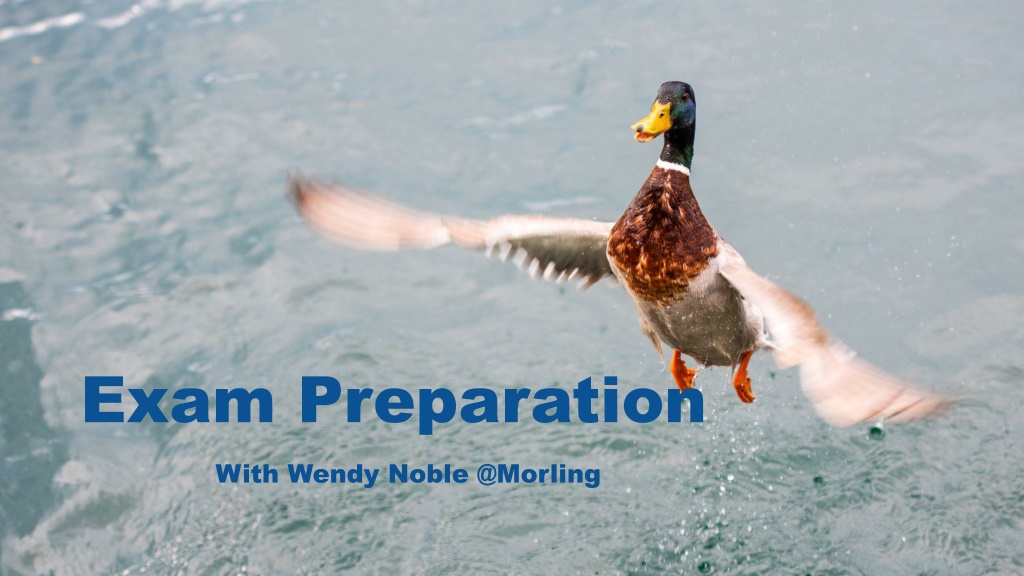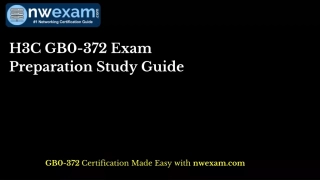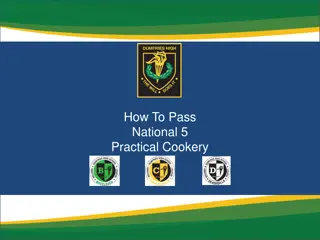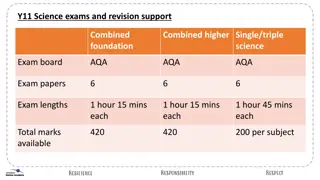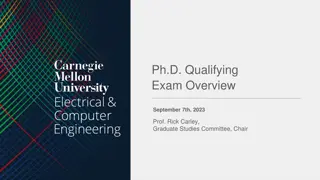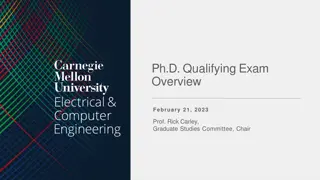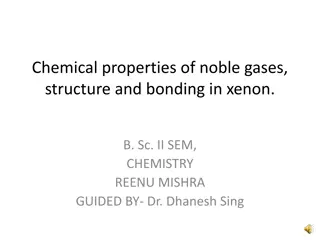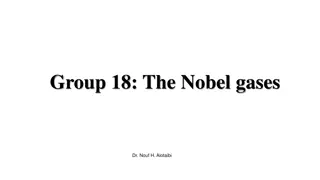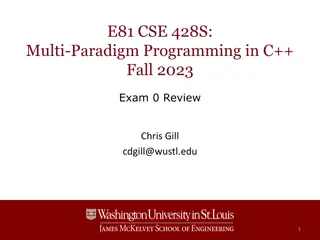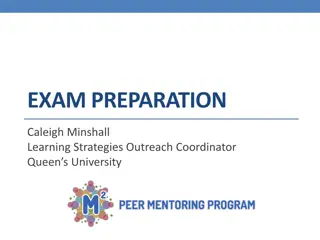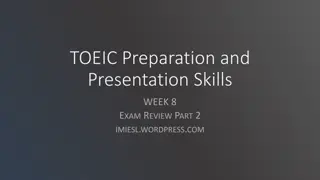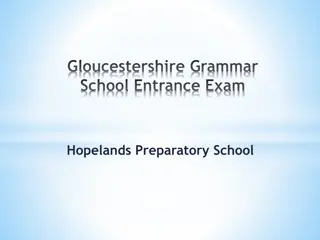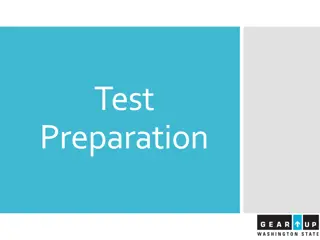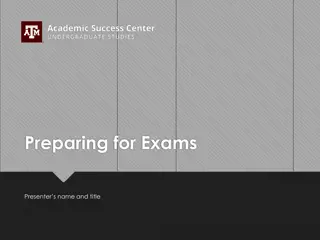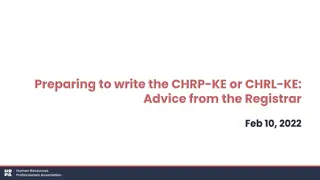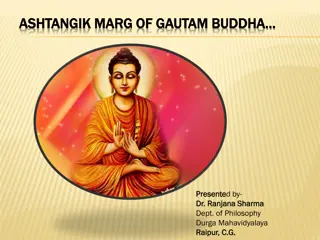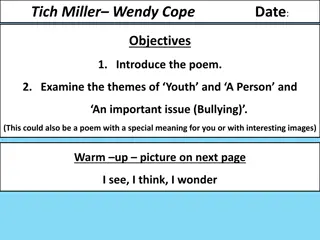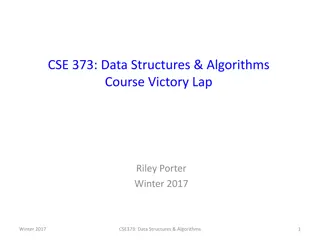Effective Exam Preparation Strategies with Wendy Noble at Morling College
Enhance your exam preparation with Wendy Noble's expert tips at Morling College. Explore ordering your knowledge, practicing exams, and invaluable study and exam writing advice. Dive into understanding course content, exam formats, learning outcomes, time allocation, materials, questions, and submission methods. Delve deeper into ACT learning outcomes for Doctrine of God and Work of Christ, main topics on the same, MC learning outcomes, practice exams, and tackle a possible exam question on the biblical basis for the threefold office of Jesus Christ.
Uploaded on Oct 05, 2024 | 0 Views
Download Presentation

Please find below an Image/Link to download the presentation.
The content on the website is provided AS IS for your information and personal use only. It may not be sold, licensed, or shared on other websites without obtaining consent from the author. Download presentation by click this link. If you encounter any issues during the download, it is possible that the publisher has removed the file from their server.
E N D
Presentation Transcript
Exam Preparation With Wendy Noble @Morling
Exam Preparation Ordering your knowledge Practice exams Tips for productive study Tips for writing exams
Ordering Your Knowledge Ordering Your Knowledge
What do I need to know? Course content Exam format MC Learning Outcomes Open or closed book ACT Learning Outcomes Time allocation Lecture material Number and type of questions Readings Method of submission Old Exam Questions
ACT Learning Outcomes for Doctrine of God and Work of Christ
Th002 Doctrine of God and Work of Christ Main Topics
MC Learning Outcomes
Practice Exams Practice Exams
Possible Exam Question Explain the biblical basis for the threefold office of Jesus Christ. Then, using scripture and theologians, explain this statement and discuss its implications to the church s mission today: The way in which Christ fulfilled his three office was radically subversive and countercultural. Reference scripture and theologians (creeds) in your answer.
Possible Exam Question Explain the biblical basis for the threefold office of Jesus Christ. Then, using scripture and theologians, explain this statement and discuss its implications to the church s mission today: The way in which Christ fulfilled his three office was radically subversive and countercultural. Reference scripture and theologians (creeds) in your answer.
Possible Exam Answer Outline Style 1 Intro Define and show in scripture the threefold office of Jesus Christ as: Prophet, Priest King In what ways has Christ fulfilled his three offices? (Ways = methods) Way 1 Way 2 Way n Where any of these ways radically subversive (against human authority) and counter cultural (against Jewish or other cultural practices)? Options (choose 1) Yes (show in scripture and theologians (creeds). OR No OR To some extent Conclusion
Possible Exam Answer Outline Style 2 Intro Prophet Define and show in scripture Jesus Christ as prophet: In what ways has Christ fulfilled his office as prophet? Where any of these ways radically subversive (against human authority) and counter cultural (against Jewish or other cultural practices)? Priest Define and show in scripture Jesus Christ as priest: In what ways has Christ fulfilled his office as priest? Where any of these ways radically subversive (against human authority) and counter cultural (against Jewish or other cultural practices)? King Define and show in scripture Jesus Christ as king: In what ways has Christ fulfilled his office as king? Where any of these ways radically subversive (against human authority) and counter cultural (against Jewish or other cultural practices)? Conclusion
Table of clue words for exams Clue word Meaning To find the main ideas, how they are related and why they are important. To discuss, criticise, or explain its meaning as completely as possible. To show both the differences and the similarities. To compare by showing the differences. To give your judgement or reasoned opinion of something, showing its good and bad points. However, it is not necessary to attack. To make an idea or situation clear to someone by describing it in more detail or revealing relevant facts. InterpretTo give the meaning using examples and personal comments to make something clear. To give a statement of why you think something is so. Give reasons for your statement or conclusion. To give a general summary: main ideas supported by secondary facts. Show the organisation of the idea. To show the connection between things, telling how one causes or is like another. To give a survey or summary in which you look at the important parts and criticise if necessary. Summar ise main ideas. Explain Analyse Comment on Compare Contrast Justify Criticise Outline To give the formal meaning by distinguishing it from related terms. To write a detailed account or verbal picture in a logical sequence or story form. Define Relate Describe Review To present arguments for and against a point of view and reach a conclusion. The arguments must be supported with appropriate evidence. Discuss To give a brief, condensed account of the To give an opinion, supported by some expert opinions, of the truth or importance of a concept. Show the advantages and disadvantages. Evaluate
Advice from lecturers: NT 002 Early NT Church How should I structure an answer? - You should aim to write for 40 minutes per question (level 5) or 50 minutes (level 7). - You should structure it like an essay, with an introduction that sets up the way in which you propose to answer the question, and a brief conclusion that summarises your points (a sentence or two will do). - The body of your answer should have one point per paragraph. State your point and explain it briefly. Then give some evidence from the text. This might simply be along general lines (e.g. 'Paul defends his character in chapter two'), or it might involve specific verse references. Without going overboard, aim to give a few references to back up each of your points. - Do not write out bible verses in full, as it just wastes precious writing time! The person marking will have a bible, and will be able to look up the verses you cite. - Above all, keep in mind the actual question. Don't just look at a question on, say, Colossians, then write everything you know about Colossians in the hope that some of it will be relevant. Higher marks are awarded to students who stay on topic in answering the question, and back up their statements with reference to the biblical text. - You don't need to be able to quote scholars, footnote, etc.
Old Exam Question: NT002 James What are the main errors that James is writing to correct? In what ways is James audience tempted to be double-minded ? How does James urge them to respond to this temptation? How does the letter of James reflect the teachings of Jesus? Who is wise and understanding among you? Let them show it by their good life (James 3:13). How does James go about teaching his readers about what is wise and what constitutes a good life ?
Old Exam Question: NT002 James What are the main errors that James is writing to correct? In what ways is James audience tempted to be double-minded ? How does James urge them to respond to this temptation? How does the letter of James reflect the teachings of Jesus? Who is wise and understanding among you? Let them show it by their good life (James 3:13). How does James go about teaching his readers about what is wise and what constitutes a good life ?
Possible Exam Answer Outline Intro main errors First error Second error Etc. James audience was tempted to be double-minded. James urged them to respond to this temptation Way 1 + James taught response A Way 2 + James taught response B The letter of James reflects the teachings of Jesus in 2, or 3 or 4 ways Who is wise and understanding among you? Let them show it by their good life (James 3:13). James taught his readers about what is wise and what constitutes a good life by x, y and z.
Tips for preparing Pay attention to your lecturers advice Gather content to address learning objectives Fill in the blanks with research Seek out practice exam questions Get used to writing under time constraints Define key terms Be familiar with relevant scripture (chapter if not verse!) Select a few quality sources Breathe
Tips for writing exams Have a good night s sleep Pray remember you are loved! Read the whole paper Select easier Qs first Jot a quick outline Manage your time Write a simple intro One idea per paragraph Topic sentence + examples. Evidence Move on to next question Allow time to re-read. Does it make sense?
References Clue Words https://student.unsw.edu.au/clue-words Unsplash credits: William Felker, Birger Strahl, Alexandr Podvalny, Nick Fewings
